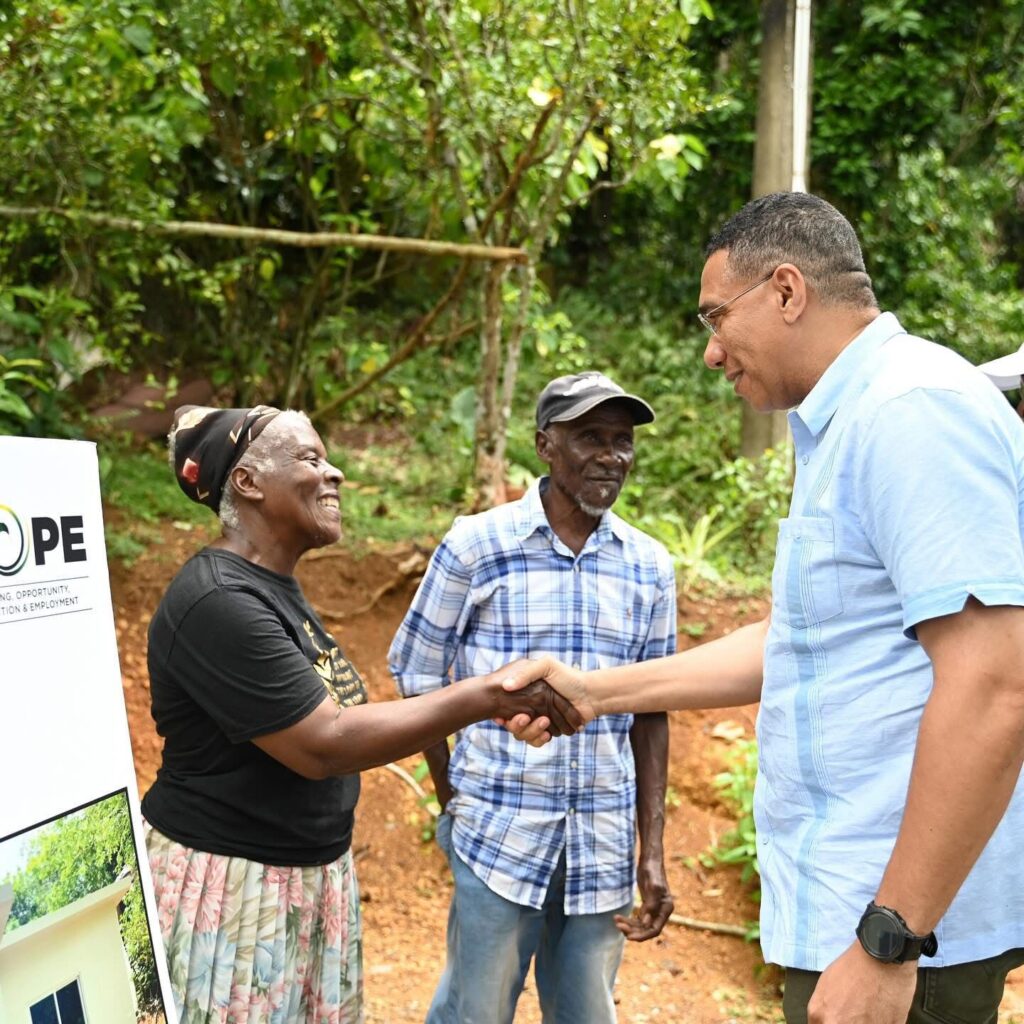No One Left Out: Government Targets Infrastructure Gaps to Bring More Jamaicans into the Circle of Opportunity

The Government of Jamaica is intensifying its work to address one of the most persistent barriers to inclusion: the lack of infrastructure that continues to keep too many Jamaicans on the outside looking in.
From poor road access and limited transportation options to weak internet connectivity in rural areas, Prime Minister Andrew Holness says these gaps are contributing to a quiet but dangerous kind of exclusion.
“Sometimes it is not that a person does not want to show up,” the Prime Minister said. “It is that they simply cannot get there. They cannot get to the registration site. They do not have the documents. They do not have reliable internet or transportation. And so, they remain on the margins, not because of ability, but because of access.”
Speaking at the launch of the one-billion-dollar Solidarity Programme on Wednesday (June 25) at Jamaica House, the Prime Minister called for greater national awareness of the daily struggles faced by Jamaicans living in remote or underserved communities.
“Many of these communities are filled with hard-working, capable people. What they need is infrastructure, the basics, to connect them to what is possible,” he said.
Through the Solidarity Programme, the government is not only providing financial grants to vulnerable Jamaicans but also helping them obtain key documents like birth certificates and NIDS. This is a deliberate attempt to bridge the logistical barriers that prevent participation in employment, education, and government services.
“We recognize that the lack of access is not just a rural problem,” Dr. Holness added. “Even in urban centers, there are informal settlements and underserved pockets where people are disconnected from the mainstream systems. Whether through transportation challenges, poor digital access, or outdated bureaucracy, these barriers compound existing inequalities.”
The government’s broader infrastructure agenda, which includes road rehabilitation, broadband expansion, water access, and digitization of public services, is part of a coordinated effort to create a more connected and inclusive society.
“This is not charity,” the Prime Minister said. “This is justice. This is about correcting long-standing imbalances in how opportunity has been distributed across our country. And it is about building a Jamaica where every citizen can participate fully, not just in the economy, but in the life of the nation.”
The Prime Minister reiterated that national development cannot be measured only by GDP or investment figures.
“True development must be measured by how many people can actually access and benefit from what the country is building,” Dr. Holness said. “That is our standard, and that is what we are working toward.”